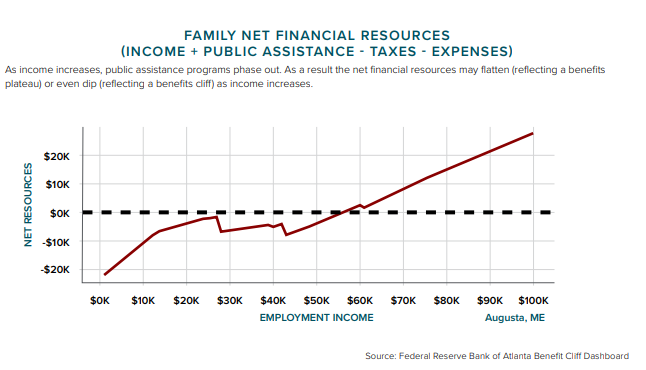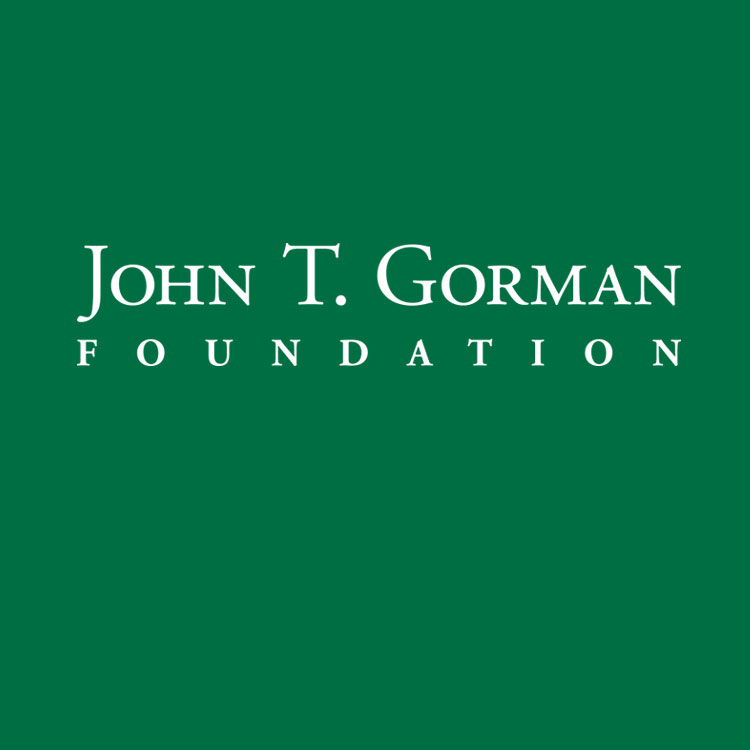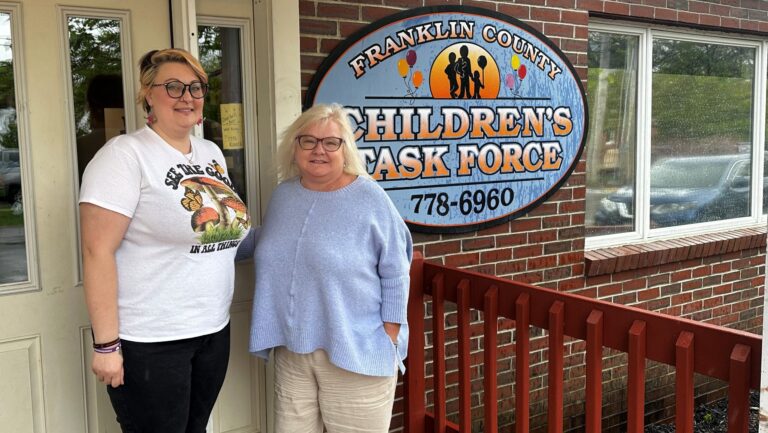
New England states have taken significant steps to mitigate the effects of benefit cliffs, but more action is needed to address these significant hurdles to family economic mobility, says a new report that the John T. Gorman Foundation has released with the support of the American Public Human Services Association, W.K. Kellogg Foundation, and the Administration for Children and Families Region 1.
Benefit cliffs happen when an increase in family income triggers reduced eligibility for government programs that help families secure childcare, healthcare, food, and other necessities. When the reduction in benefits is greater than the increase in income, families experience a net loss of financial resources – a financial cliff that can occur multiple times on the path out of poverty. These cliffs not only make it more difficult for parents to provide for their families, but also pose challenges to employers who are looking to hire and promote workers in a tight labor market.
“A parent shouldn’t have to choose between taking that higher-paying job or keeping the health insurance that ensures access to the medication their child needs – but this is the predicament benefit cliffs often put them in. This is not a problem of individual choice, but of systemic barriers to economic mobility,” said John T. Gorman Foundation President & CEO Nicole Witherbee. “There is a lot to learn from the work Maine and other New England states have done in recent years to mitigate these cliffs and make the path out of poverty a little smoother. This report highlights those lessons and identifies what steps still need to be taken.”
The report chronicles the changes New England states have made in administering assistance programs with the goal of addressing benefit cliffs. These efforts include phasing out benefits more slowly as income increases; allowing more earned income to be retained in the transition to work; raising eligibility limits so fewer families encounter benefit cliffs; and giving families access to coaching and other tools to help them navigate the cliffs. The report also highlights potential opportunities for federal action at the administrative and legislative levels.
Go here to read the full report.
The John T. Gorman Foundation supported the development of this report as part of its ongoing work with the Whole Family Approach to Jobs initiative. Led by the Administration for Children and Families in collaboration with the American Public Human Services Association, this New England effort promotes family well-being and economic mobility through the collaboration of state agencies, policymakers, parents, and the private sector.



